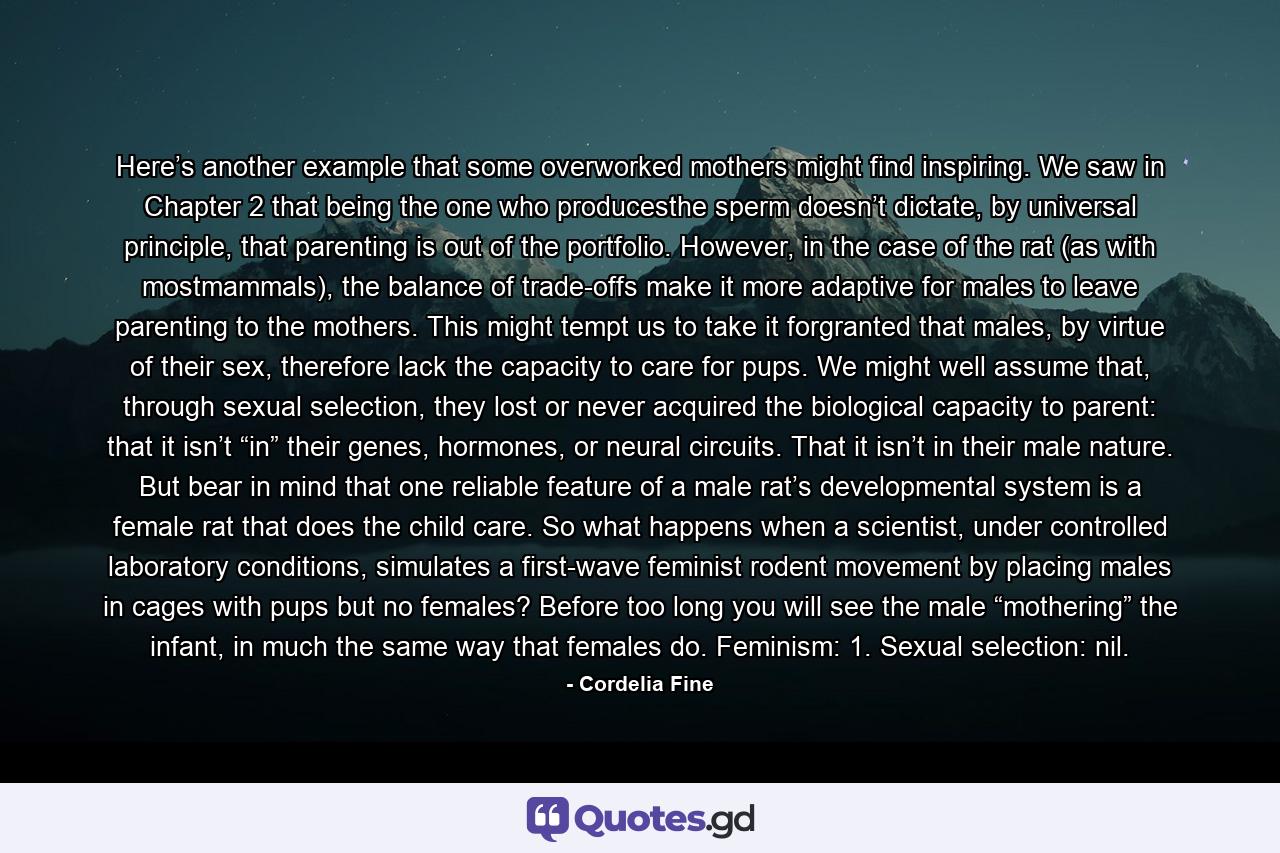Here’s another example that some overworked mothers might find inspiring. We saw in Chapter 2 that being the one who producesthe sperm doesn’t dictate, by universal principle, that parenting is out of the portfolio. However, in the case of the rat (as with mostmammals), the balance of trade-offs make it more adaptive for males to leave parenting to the mothers. This might tempt us to take it forgranted that males, by virtue of their sex, therefore lack the capacity to care for pups. We might well assume that, through sexual selection, they lost or never acquired the biological capacity to parent: that it isn’t “in” their genes, hormones, or neural circuits. That it isn’t in their male nature. But bear in mind that one reliable feature of a male rat’s developmental system is a female rat that does the child care. So what happens when a scientist, under controlled laboratory conditions, simulates a first-wave feminist rodent movement by placing males in cages with pups but no females? Before too long you will see the male “mothering” the infant, in much the same way that females do. Feminism: 1. Sexual selection: nil.
